This is Part 2 of my post on hunting’s Traditional Spirit. I wrote much of what you’ll find below for my 2016 book, “A Traditional Bowhunter’s Path.” The message seems even more poignant today. Privatization, budget cuts, and a de-valuing of science are threatening the conservation of our public lands and the wildlife that rely upon them. Yes, we have recently won some skirmishes by having proposed legislation rescinded, but don’t be fooled. The myopic and fiscally motivated souls who seek to dismantle our unique system of public lands are cut from the same cloth as those felled by TR and Pinchot more than a century ago. If you haven’t read it, grab a copy of “The Big Burn” by Timothy Egan. We must remain vigilant and keep that proverbial “big stick” (or maybe it’s a longbow!) at hand.
Discussions about the future of hunting and the related topics of ethics and wildlife conservation can become tedious and sometimes negative, so I want to begin (and end) this post with a positive message: through harnessing our collective Traditional Spirit, today’s growing community of traditional bowhunters has the opportunity to change the face of hunting by helping to conserve wild places, protect our hunting heritage, and restore full public trust in hunters. By standing up for our values, taking action, and encouraging others to do the same, we can help ensure that hunting—and a place to pursue it—is enjoyed by all Americans for generations to come. Wouldn’t that be a fantastic legacy?
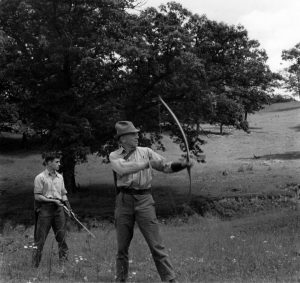
Aldo Leopold, the father of modern wildlife management, enjoyed making and hunting with selfbows.
Hunters were once the conservation innovators of our country, protecting millions of acres from over-cutting, dredging, and mining; and policing their own ranks to rid themselves of shameless market hunters. In recent times, however, the hunter’s role in conservation has become less clear and sometimes even obstructive. In many ways, modern hunters are trapped in a political game of Pickle. Through its conservation philosophy, the liberal left protects public and private land that is essential for hunting to continue; but the conservative right, led by the powerful NRA lobby, protects our right to keep firearms, which are necessary for most hunters to hunt. Faced with the perceived (or real) fear of losing their guns, most hunters cast their votes to the anti-environmental right in an effort to protect what they see as the most immediate threat to hunting. This is understandable, but in some ways it represents a dangerous trend for hunting opportunities. How many of you can return to your boyhood haunts and say the place is still ecologically intact? The stream where I caught my first brook trout is now confined to a concrete culvert at the edge of a Walmart parking lot. The place where my father taught me to stalk groundhogs and swing on a mourning dove is now a housing development.
Perhaps even more disturbing are recent efforts on behalf of political conservatives and private industry to privatize and sell federal public land that is owned by the citizens of this country and has offered free public hunting for generations. Losing hunters from our ranks due to a lack of places or experiences means diminishing political clout and cultural relevance—a trend that will eventually put us on the endangered species list. As hunters, we must learn to play the political go-between in ensuring that our natural world is protected and that at the same time we retain the right to bear arms. This means showing political flexibility to support science-based conservation policies that limit human development, provide continued protection for our unique system of public lands, and ensure healthy wildlife populations, while at the same time not letting our firearms rights slip away.
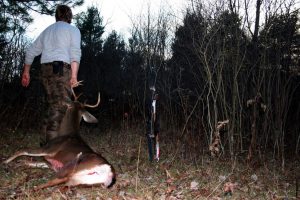 In addition to our political quagmire, our own bad behavior has caused us to lose public trust and the respect of some wildlife conservation organizations that might otherwise be supportive partners. Let’s take canned hunts inside fenced enclosures for pen-reared animals as just one example. The lack of pride, respect, and fair chase displayed every time a so-called “hunter” pays tens of thousands of dollars to shoot a freakishly large whitetail behind a big fence on a Saturday morning television show is surely enough to convert any non-hunter into an anti-hunter. Fair chase aside, these farms are also the epicenters for transmission of potentially disastrous diseases to wild ungulate populations. Further, the lack of will displayed by the hunting community at large in objecting to irresponsible game farming is shameful. As hunters carrying the Traditional Spirit, we can do better.
In addition to our political quagmire, our own bad behavior has caused us to lose public trust and the respect of some wildlife conservation organizations that might otherwise be supportive partners. Let’s take canned hunts inside fenced enclosures for pen-reared animals as just one example. The lack of pride, respect, and fair chase displayed every time a so-called “hunter” pays tens of thousands of dollars to shoot a freakishly large whitetail behind a big fence on a Saturday morning television show is surely enough to convert any non-hunter into an anti-hunter. Fair chase aside, these farms are also the epicenters for transmission of potentially disastrous diseases to wild ungulate populations. Further, the lack of will displayed by the hunting community at large in objecting to irresponsible game farming is shameful. As hunters carrying the Traditional Spirit, we can do better.
Our naïve and bad behaviors create more than a simple image problem. Hunting is a privilege granted only through state and federal law, and that law must be upheld through the course of history by the voting public. In the eyes of many non-hunters (90% of voters), recreation alone is no longer a justifiable reason to hunt. If hunting is to continue as an acceptable pursuit, we must prove ourselves to be effective wildlife managers and forward-thinking conservationists.
The ecosystems of North America have been irreparably changed. Gone are the great forests that once stretched from Maine to Florida and west to the Big Thicket of Texas. Gone are the undulating prairies that once rubbed elbows with the Appalachians and the Rockies. Gone are the cathedral-like old-growth forests of the Pacific Northwest. Gone are the earth-churning herds of bison and sky-blotting clouds of passenger pigeons. The loss of these habitats and their occupants, especially the mega-predators, has distorted the finely tuned checks and balances that once governed our natural world. Deer, no longer limited by food and predators, now grow to unprecedented numbers on the fat of our suburban developments. Human wildlife conflicts are at an all-time high as civilization encroaches on our remaining wild lands, while at the same time some species become ultra-abundant by capitalizing on the humanized landscape. As a result, more than ever, hunters are expected to play the role of conservation biologist and predator in implementing sound wildlife management strategies. To prove that we are an asset to our communities, we must dig deep for the roots laid down by the likes of Teddy Roosevelt and Aldo Leopold, by continually showing our worth through behaving ethically and responsibly, and providing services that benefit all citizens. One example of this, is cheaply and safely managing locally overabundant and damaging wildlife populations, including white-tailed deer, black bears, and feral hogs.
I am certainly not the first person to acknowledge or write of the travails that hunting faces. To my knowledge, however, I am the first to recognize that traditional bowhunters, because of our values and growing numbers, are in a unique situation to play a significant role in re-establishing the modern hunter as a respected conservationist and steward. In my experience, the Traditional Spirit carried in each of us offers respect, access, and opportunity not automatically afforded to other hunting groups.
A stalwart tribe of traditionalists, including Don Thomas, Gene and Barry Wensel, T.J. Conrads, and David Petersen has been keeping the Traditional Spirit Alive for decades by shining a light on conservation and fair chase. In fact, compared to our numbers, traditional bowhunters have an outsized presence as leaders in hunter-conservation groups, such as Backcountry Hunters & Anglers. Today, a young, new cohort of traditional bowhunters, including Clay and my fellow guest bloggers on this site, is taking the reins with a gusto that would make even ole TR proud!
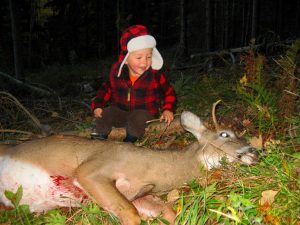 These thoughtful and innovative hunters—and thousands more whom I unfortunately have no space to acknowledge—are breathing new life into the conservation ethic and winning the respect of Americans by proudly flying a flag of Traditional Spirit that’s impossible to miss. Internationally recognized hunter-conservationist Shane Mahoney has said that the hunter-led conservation movement of the late nineteenth century was “the last act of American genius.” At first this might sound shortsighted. What about putting a man on the moon, inventing the internet, or mapping the human genome? Weren’t those acts of genius? But then again, maybe Mahoney is right. None of those accomplishments could have happened without clean air, clean water, and ample natural resources. Had hunters remained on the sidelines more than a century ago, we might have persisted on our destructive path of taking what we wanted without regard for sustainability or the notion of conservation. If not for hunters, we might not be here today, and even if we were, we’d lack our capacity to do great things. When considered from Mahoney’s point of view, the gravity of our responsibility as traditional bowhunters to uphold “the last act of American genius” becomes clear. Let’s build on the legacy handed to us by restoring public trust in hunters and forever protecting our wild places with the power of the Traditional Spirit!
These thoughtful and innovative hunters—and thousands more whom I unfortunately have no space to acknowledge—are breathing new life into the conservation ethic and winning the respect of Americans by proudly flying a flag of Traditional Spirit that’s impossible to miss. Internationally recognized hunter-conservationist Shane Mahoney has said that the hunter-led conservation movement of the late nineteenth century was “the last act of American genius.” At first this might sound shortsighted. What about putting a man on the moon, inventing the internet, or mapping the human genome? Weren’t those acts of genius? But then again, maybe Mahoney is right. None of those accomplishments could have happened without clean air, clean water, and ample natural resources. Had hunters remained on the sidelines more than a century ago, we might have persisted on our destructive path of taking what we wanted without regard for sustainability or the notion of conservation. If not for hunters, we might not be here today, and even if we were, we’d lack our capacity to do great things. When considered from Mahoney’s point of view, the gravity of our responsibility as traditional bowhunters to uphold “the last act of American genius” becomes clear. Let’s build on the legacy handed to us by restoring public trust in hunters and forever protecting our wild places with the power of the Traditional Spirit!
Keep the Traditional Spirit Alive
Ron Rohrbaugh, April 2017
www.TraditionalSpiritOutdoors.com
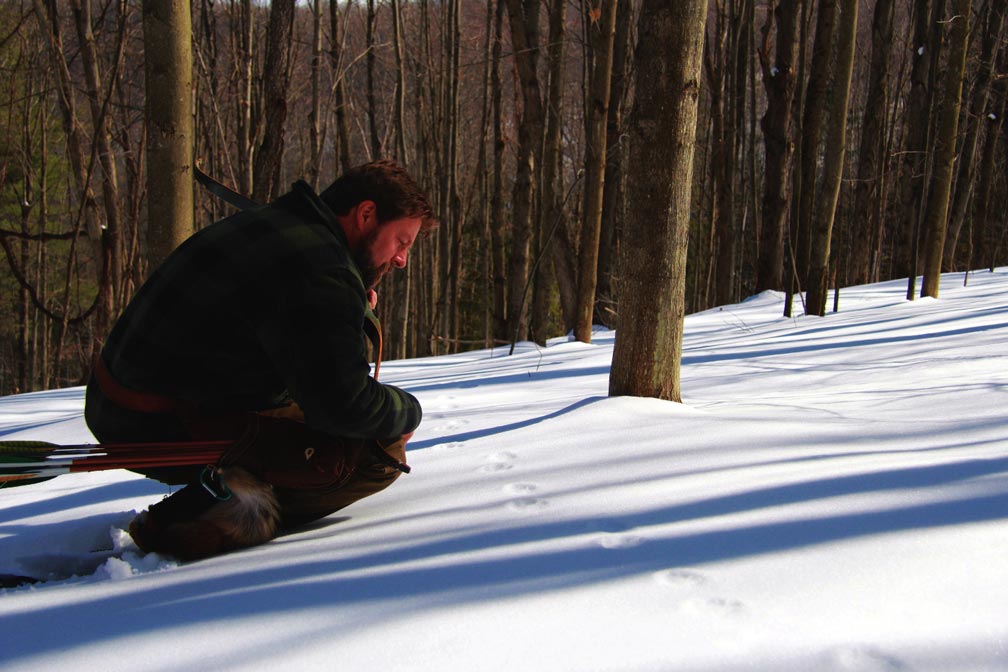
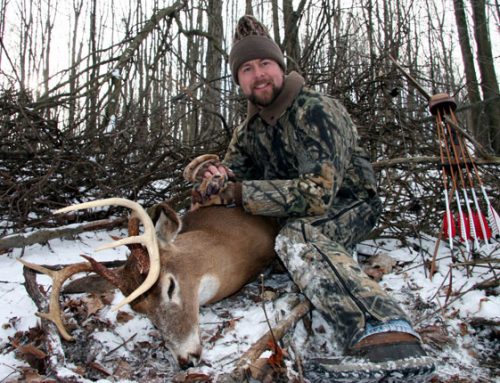
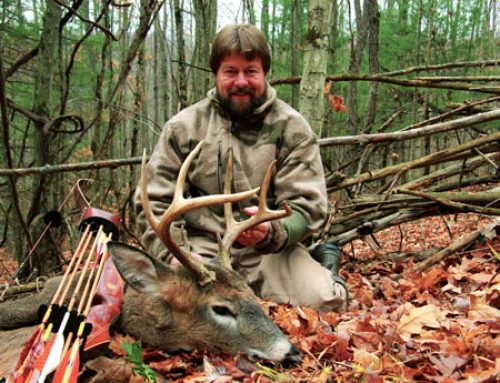
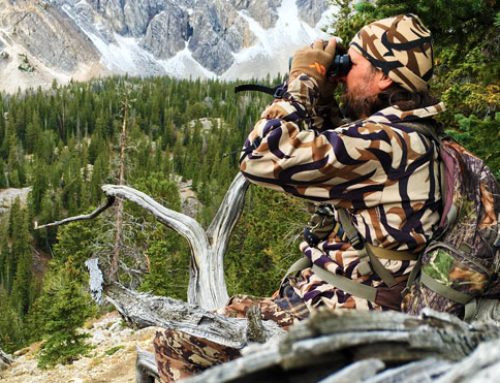
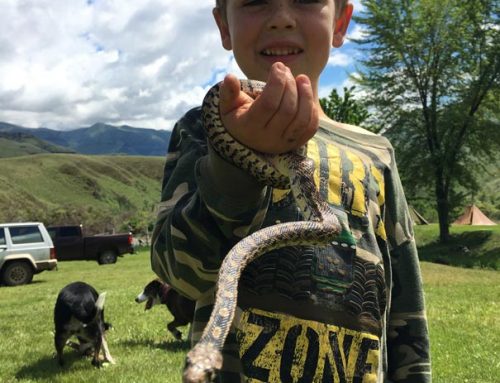
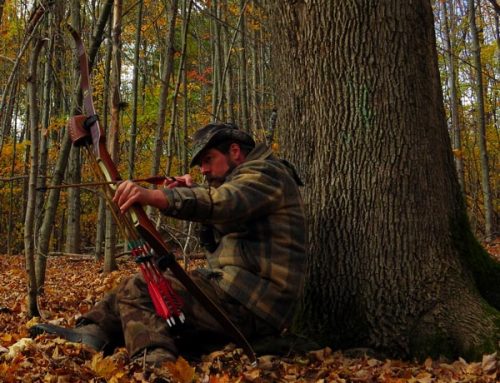
great blog need more people to step up
Very nicely written.
In the Midwest were I live we have the problem of the farmers plowing under all the small wooded areas to make more farmable tillable land. I don’t blame the farmers for this because this is how they make there living. But as the farms get bigger our huntable land is getting smaller this is part of the problem of the wildlife moving into the urban areas.
Very well written. Several years ago I went back to where I grew up and hunted to see that the yuppies destroyed the area with all new housing subdivision and even plowed down the Indian burial mounds. It made me sick to see all that destruction. You’ve got to stand up and fight the outright greed of these no heart, no courage and no brain politicians. Traditional Only!!! Happy Easter to All!! Van
Clay, I am delighted you hosted this blog.
Ron, this is beautifully written and a powerful argument. No surprise there however as I am halfway through your traditional archery book and loving every page.
As an obsessive fisherman, middling hunter (I’m working on it) gun owner and former head of Greenpeace, I feel like you have captured our dilemma and laid out an eloquent path forward.
Thank you.
John
What a beautiful read! Thank you for the thoughtful resume on a difficult subject.
Your statement is full of insight and a true help for a better understanding.
I’m looking at things here in Europe where we have such a different heritage and structures yet the same natural laws apply.
I only recently got my hunting license and i am only interested in hunting with bow and arrow which is very exotic for Europe.
Exited to see what the future of hunting will be like over here.
Thank you
Steve
Great blog guys. Having resided in Northern Ontario for all of my 55 years, it’s disheartening to witness the loss of vast tracts of formerly accessible lands to private interests. Even north of the border we face the same discouraging outlook as our U.S. neighbors.
About five or six years ago I went traditional, and now make all my own gear. As well as being a life changing experience, the most unexpected surprise was the positive response of non-hunters, many of whom are now interested in taking up the pursuit.
Ron and Clay, keep up the good work. There is a light on the horizon.
I couldn’t agree with you more. We need to organize- local, state and federal- It’s the only way. Collect accurate data and find a spokesperson- people need to know, understand and stand up for this. Before it’s to late.
Kevin Page
Thanks to everyone for your positive comments. It means so much to hear such strong affirmation for these ideas. Conservation is complicated. For every complex problem there is a simple answer…and it’s usually wrong! But, cooperative solutions are out there if we work hard enough.
I did receive one private message that was decidedly negative. The primary complaint was about the need to be politically flexible. Strong political ideology might feel comfortable and empowering, but every conservation conundrum is different. Science, and not emotion or political fervor, should guide our decision making.
Anyway, thanks for your kind words.
Keep the Traditional Spirit Alive!
Thank you for you writing what needs to be said on the direction of our Country.
Great article! As an outdoor writer and trad bowhunter, I appreciate your article. Access is a key problem and the misunderstanding of wildlife needs is disturbing. Loss of habitat is the key problem and I don’t see a short-term solution.
Keep the faith and get the word out to all those who care.
Ron,
Thanks. Well done article. I disagree with a few points here, but the overall theme is spot on, and we need to have our voices heard as a collective. The values and principles of the traditional bowhunting crowd can help lead and inspire the next generation of outdoor enthusiasts, conservationists and ethical-fair chase hunters. We have a great story to tell, and one a surprising number of Americans are looking for in these trying political times.
Please keep up the great work,
Paul
Thanks, Paul. It’s not surprising that we don’t all agree on the details. In the long run, I think that’s okay. The important thing is that we work together toward a common set of goals that have high conservation value and for which we can all be proud.
Keep the Traditional Spirit Alive.
Ron